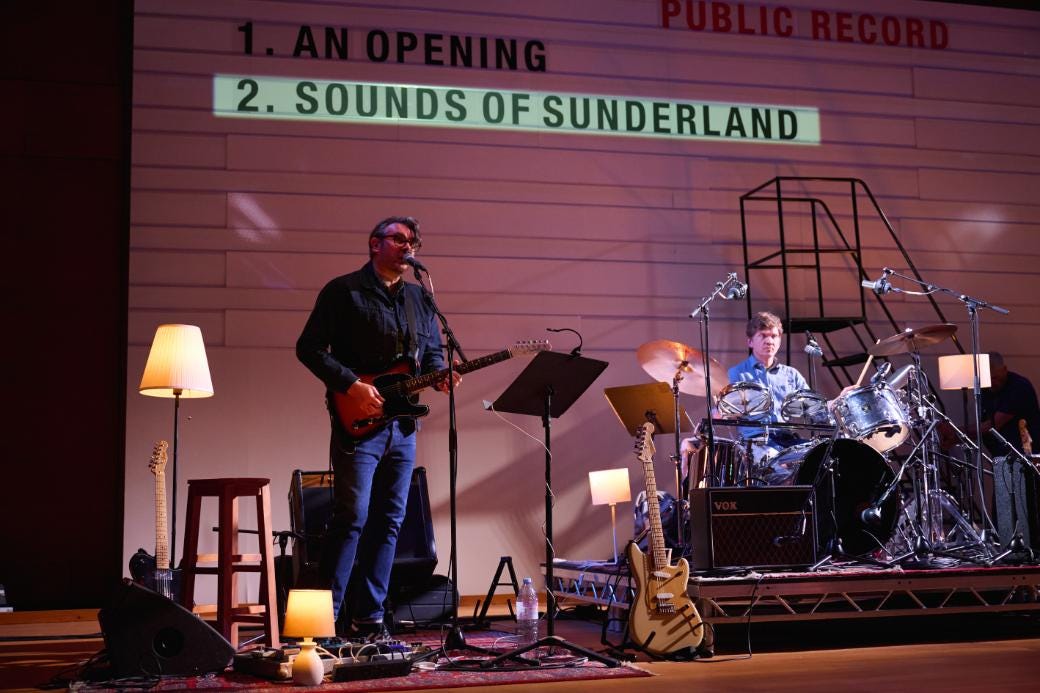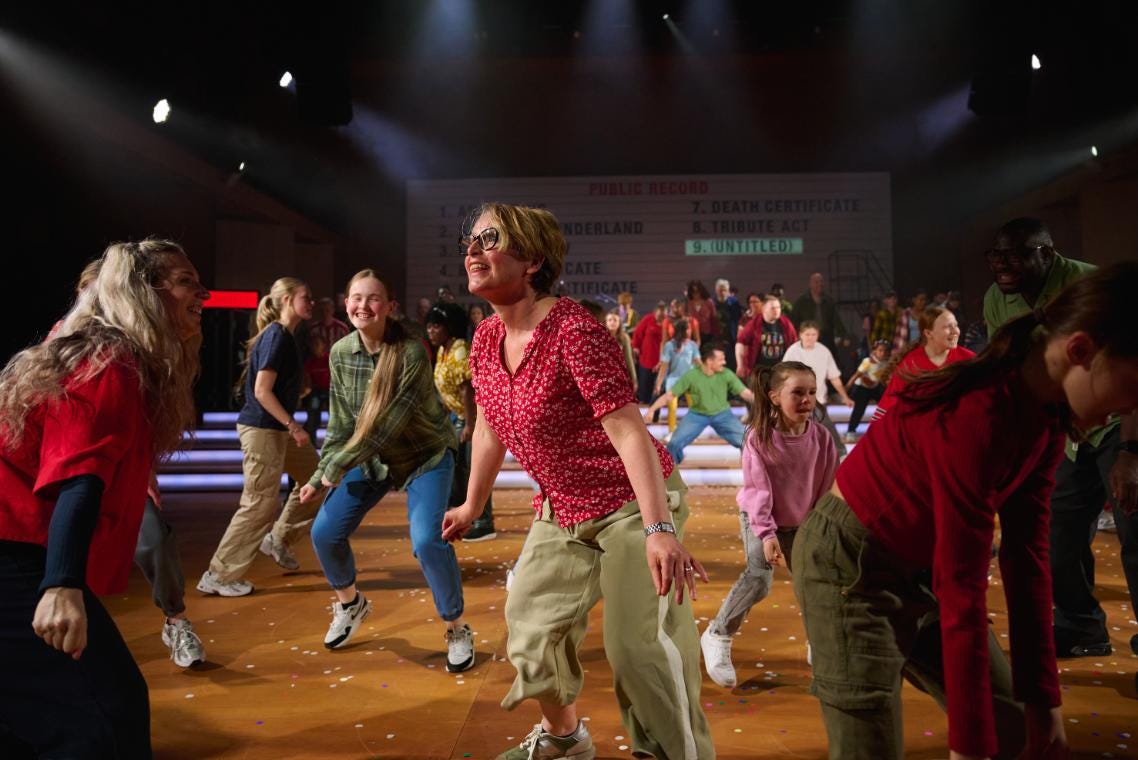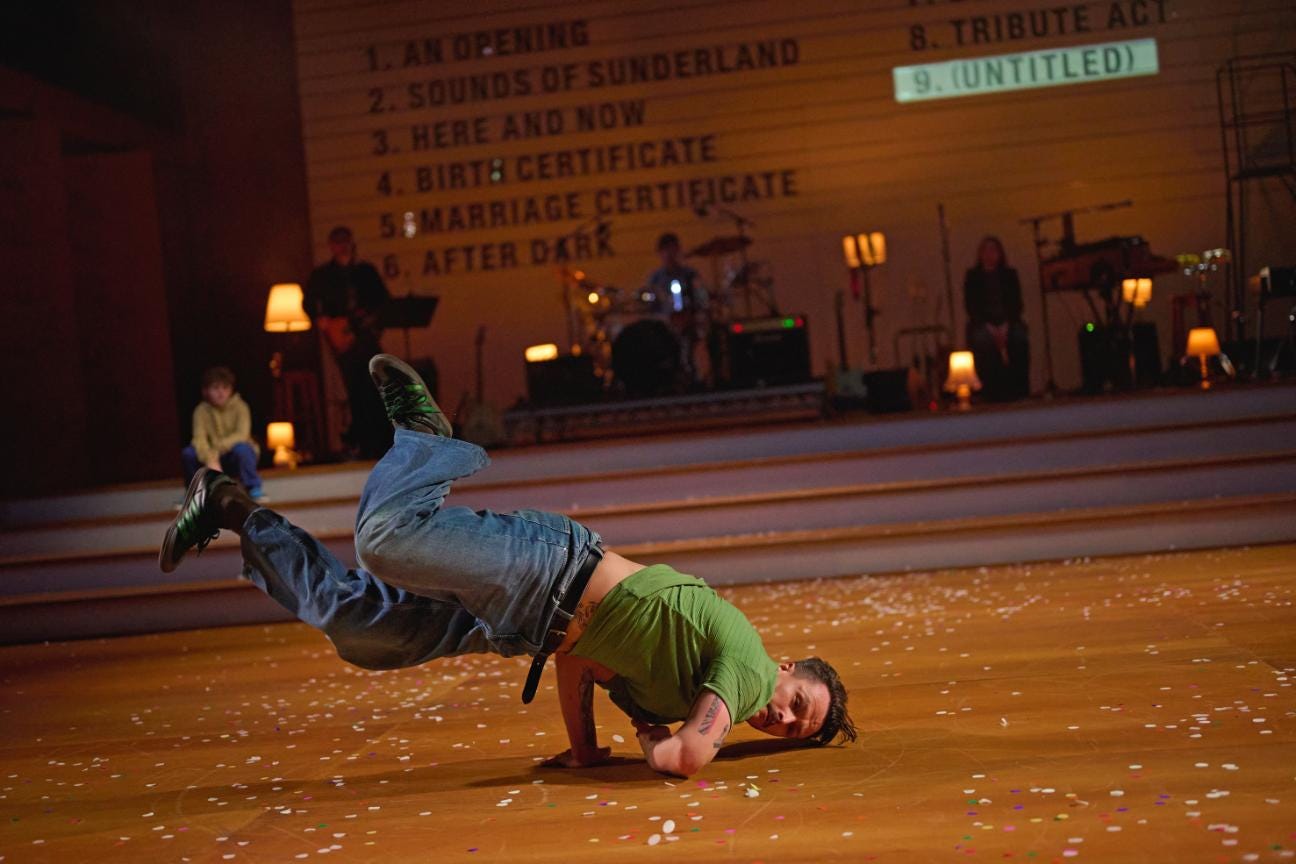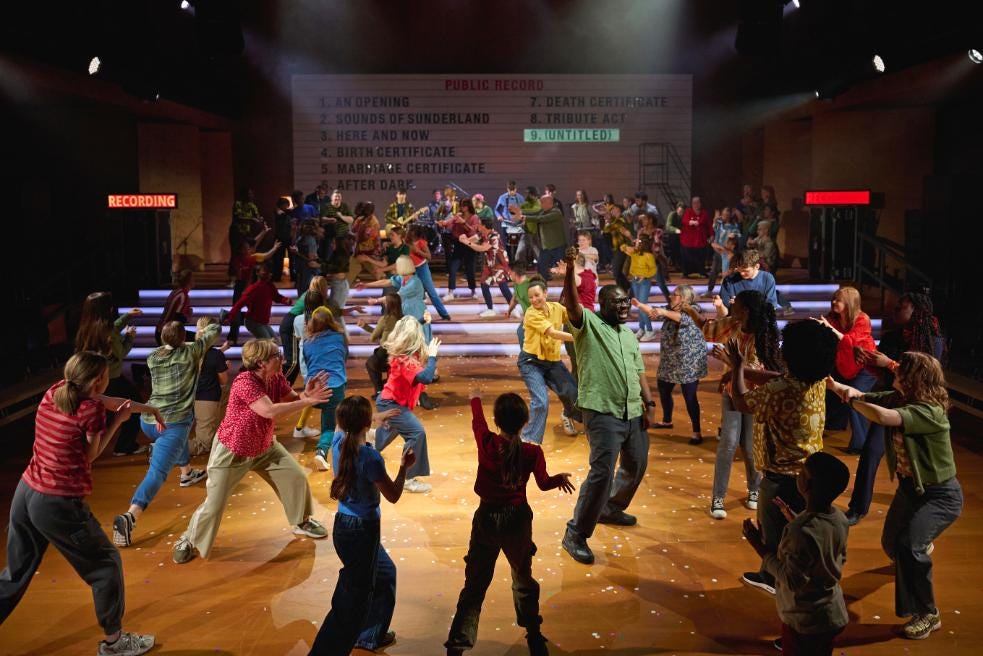Review: Public Record at The Fire Station, Sunderland
Sam Wonfor reports back from a glorious celebration of a city and its people... and would like to thank everyone involved for giving her optimism stocks a much-needed shot in the arm

If ever there was proof that community theatre can be just as thrilling, moving, and unforgettable as any big budget bells and whistles production, Public Record is it.
In this life-affirming collaboration between the National Theatre’s Public Acts programme, Sunderland Culture, and Sunderland Empire, the people of Sunderland didn’t just take to the stage – they owned it.
Over three nights (Apr 25-27) Public Record transformed city centre venue The Fire Station into a living, breathing recording studio, where more than 100 community performers - supported by a committed team of professionals - came together to create a vibrant, eclectic portrait of their city through music, dance, and storytelling.
The energy was infectious from the moment we were welcomed into the auditorium, which had been laid out to accommodate its extra large cast, including members of local groups such as Back on the Map, Connect Company and Sunderland Nigerian Family Support Group, and make us all feel part of the album they were laying down live.
Structured around 13 tracks, each exploring a different theme - birth, love, identity, loss, celebration - through song, dance, and spoken word, the show had been built through 18 months of deep listening, collaboration, and community engagement.
What makes this production so special is its palpable authenticity. These weren’t actors playing roles; they were people telling their own stories - celebrating births, mourning losses, embracing identity, and dreaming big for the future.
And they were doing it all via a tightly put together production worthy of any stage you’d care to mention. As long it was a big one.
Co-directors Emily Lim and Dan Canham (who also choreographed the piece), alongside North East writer Stewart Pringle, have crafted a show which feels genuinely rooted in Sunderland's streets, its memories, and its collective soul.
Fittingly, the soundscape is stitched together with real sounds from the city itself - including one of the production’s most touching details: the cries of a newborn baby during a track called Birth Certificate, captured less than a day after their arrival at Sunderland’s Royal Hospital.
It’s a powerful moment, symbolising hope, new beginnings, and the living heartbeat of Sunderland’s community, many of whom (including some audience members) shared their wishes for the life of the newborn.
Musically - as you would expect with The Futureheads’ Ross Millard at the helm as composer and musical director - it’s a relentless feast.

He put together an outstanding house band featuring Peter and David Brewis (Field Music), Northumberland musician Sarah Hayes, fellow Futurehead, Barry Hyde and fresh young talents from the Young Musicians Project.
The soundtrack moved seamlessly from moving ballads to rave-ready beats, even throwing in a glorious and sequin-soaked sing-out to ABBA along the way.
Special guests like up and coming singer, Lily Mac, Sunderland scene stalwart Dave Murray, performance artist Sophie Lisa Beresford and Afrobeats DJs DJ Bykonz and DJ Banko were across-the-board brilliant, reflecting the true diversity of the city.
One of the evening’s most poignant moments hit hard with a soaring tribute to the late Sunderland singer-songwriter Faye Fantarrow, who passed away at just 21 in 2023 after battling a brain tumour, her third cancer.
The devastating diagnosis came on her return from recording an EP in the Bahamas with Sunderland music legend, Dave Stewart who had signed Faye to his record label.
Four of members from Laura Brewis’ Young Musicians Project - of which Faye was once part - performed her beautiful song, Midas, which served as track 8, Tribute Act on the night and was interwoven with words from Faye’s family.
Visually, the show was brimming and bursting with colour, movement and energy, thanks to its unashamedly joyful choreography while the simple but effective staging drew the audience deep into the experience.
But perhaps the greatest triumph of Public Record was - and is - the sense of belonging it fostered.
This wasn’t just about putting Sunderland’s story on vinyl (though that’s exactly what they’re doing - a pressed record of the performance will be archived by both the British Library and Sunderland Museum); it was about making everyone in the room — performers and audience alike - feel part of something bigger. A community. A city with a proud past (featuring some excellent music venues remembered fondly during track 7, Death Certificate)and an even brighter future.
At a time when theatre can sometimes feel out of reach, Public Record offered a powerful reminder that when people are given the space to tell their own stories, magic happens.
Sunderland should be proud - their song is being sung, and it’s sounding beautiful.







I agree with everything written here
It was a celebration of all that is positive about the human spirit. Not to be forgotten.